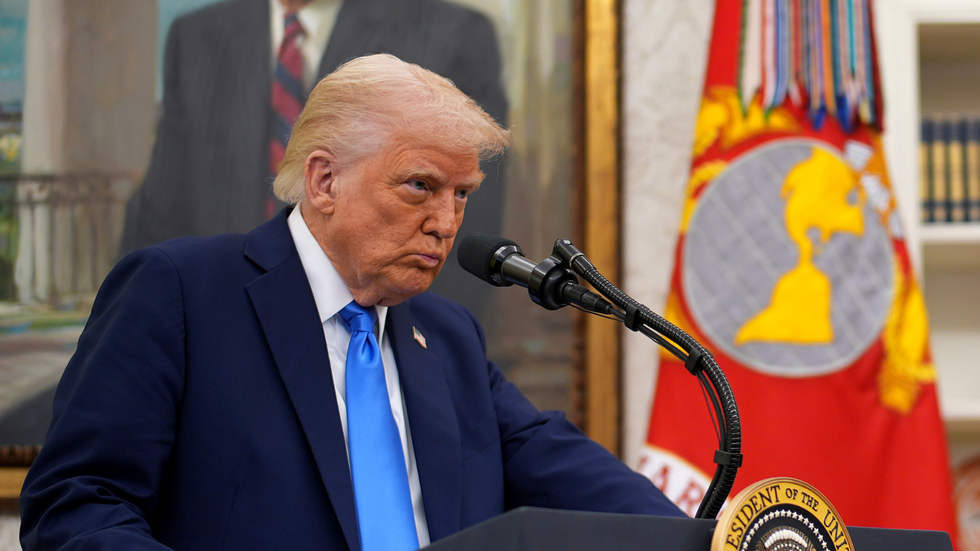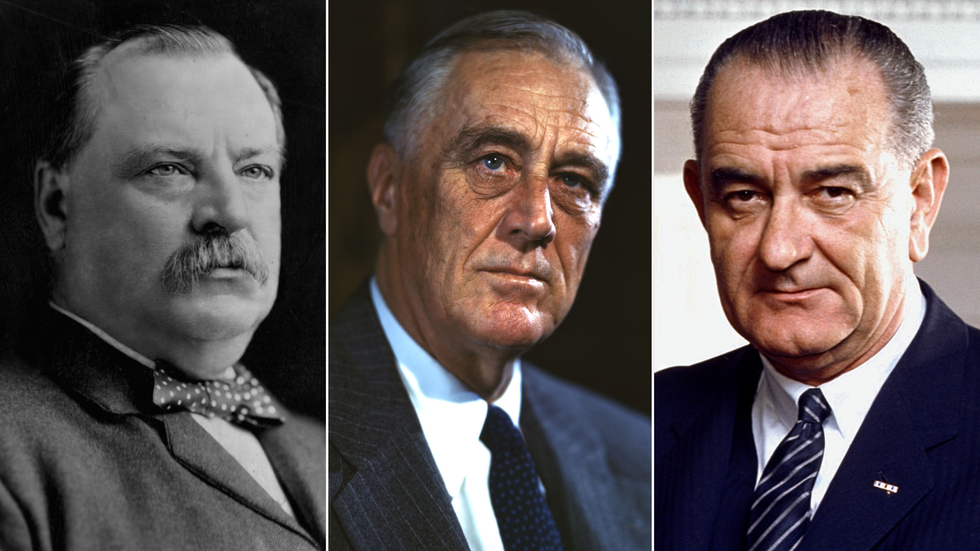James Saunders
Guest Reporter
Donald Trump has revealed he is "not joking" about seeking an historic and constitutionally prohibited third term in the White House.
In a barnstorming interview with NBC on Sunday, the 47th President teased that there were "methods" available to secure a possible 12-year stint in the Oval Office.
And though he counselled that it was "far too early to think about it", Trump added: "A lot of people want me to do it".
"I basically tell them we have a long way to go, you know... It's very early in the administration," he said.

The American Constitution's 22nd Amendment explicitly states: "No person shall be elected to the office of the President more than twice."
But Trump could look to exploit a loophole to make a contentious return to power.
Asked whether Vice President JD Vance could win the White House in 2028 then hand down the role to Trump, the President said "that's one" possibility - but added that there were "others, too".
Meanwhile, Steve Bannon, Trump's chief strategist over part of his first term in the White House, has vowed the Commander-in-Chief "will run and win again in 2028".
LATEST ON DONALD TRUMP:

Trump's "methods" behind a potential third term would likely include securing a two-thirds - or "supermajority" - vote in Congress, or a "constitutional convention" called by two-thirds of the US's 50 states to change the rules.
The President would have to convince a sizeable chunk of Democratic opposition lawmakers - plus some of his own, more moderate, Republicans - to be successful.
But Trump has already made history in returning to the White House for a second non-consecutive term, emulating Grover Cleveland who did the same in the late 19th century.
He would become only the second President since World War Two hero Franklin Delano Roosevelt to serve more than two terms - though FDR's four-time election to the Oval Office is the reason term limits were brought in in the first place.

Pursuing the "JD Vance loophole" would also see Trump follow a similar path to Lyndon B Johnson.
Johnson, who was sworn in to replace the assassinated John F Kennedy in 1963, won the 1964 election before unsuccessfully trying again in 1968.
If he had been victorious at the second attempt, Johnson would have ended up serving around nine years in the Oval Office.
But some constitutional lawyers remain unconvinced. Derek Muller, a professor of election law at Notre Dame University, Indiana, pointed to a law from the 1800s which prohibits anyone ineligible to run for President from running as Vice President.
Muller said that if the constitution prevented Trump from running for a third term at the top of the ticket, he would also be barred from running for VP.
Find Out More...
In a barnstorming interview with NBC on Sunday, the 47th President teased that there were "methods" available to secure a possible 12-year stint in the Oval Office.
And though he counselled that it was "far too early to think about it", Trump added: "A lot of people want me to do it".
"I basically tell them we have a long way to go, you know... It's very early in the administration," he said.

The American Constitution's 22nd Amendment explicitly states: "No person shall be elected to the office of the President more than twice."
But Trump could look to exploit a loophole to make a contentious return to power.
Asked whether Vice President JD Vance could win the White House in 2028 then hand down the role to Trump, the President said "that's one" possibility - but added that there were "others, too".
Meanwhile, Steve Bannon, Trump's chief strategist over part of his first term in the White House, has vowed the Commander-in-Chief "will run and win again in 2028".
LATEST ON DONALD TRUMP:
- Trump 'p***ed off at Putin' as Zelensky reveals how much Russia BOMBARDED Ukraine in just one week
- Farage distances himself from Trump after warning Ukraine peace deal could turn Putin into ‘winner’
- Europe needs to respond to Trump's call to do more on defence, Armed Forces Minister claims

Trump's "methods" behind a potential third term would likely include securing a two-thirds - or "supermajority" - vote in Congress, or a "constitutional convention" called by two-thirds of the US's 50 states to change the rules.
The President would have to convince a sizeable chunk of Democratic opposition lawmakers - plus some of his own, more moderate, Republicans - to be successful.
But Trump has already made history in returning to the White House for a second non-consecutive term, emulating Grover Cleveland who did the same in the late 19th century.
He would become only the second President since World War Two hero Franklin Delano Roosevelt to serve more than two terms - though FDR's four-time election to the Oval Office is the reason term limits were brought in in the first place.

Pursuing the "JD Vance loophole" would also see Trump follow a similar path to Lyndon B Johnson.
Johnson, who was sworn in to replace the assassinated John F Kennedy in 1963, won the 1964 election before unsuccessfully trying again in 1968.
If he had been victorious at the second attempt, Johnson would have ended up serving around nine years in the Oval Office.
But some constitutional lawyers remain unconvinced. Derek Muller, a professor of election law at Notre Dame University, Indiana, pointed to a law from the 1800s which prohibits anyone ineligible to run for President from running as Vice President.
Muller said that if the constitution prevented Trump from running for a third term at the top of the ticket, he would also be barred from running for VP.
Find Out More...
